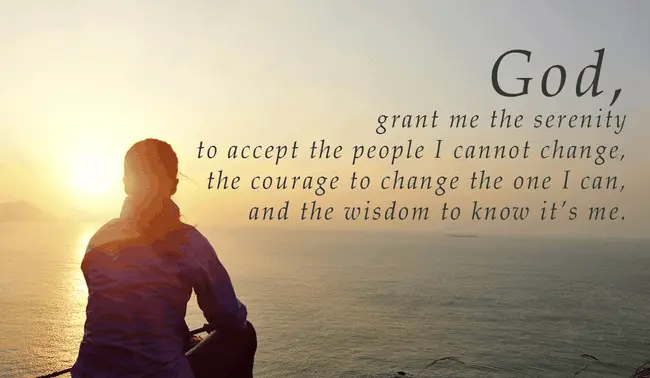God Grant Me the Serenity: Finding Peace in Turbulent Times
In a world filled with chaos and uncertainty, the phrase God grant me the serenity has become a beacon of hope for many. This simple yet profound prayer has helped countless individuals navigate life’s challenges and find inner peace. In this article, we’ll explore the origins, meaning, and practical applications of this powerful mantra.
The Origins of God Grant Me the Serenity
The Serenity Prayer
The phrase God grant me the serenity is the opening line of what’s commonly known as the Serenity Prayer. The full prayer reads:
God, grant me the serenity to accept the things I cannot change, Courage to change the things I can, And wisdom to know the difference.
Reinhold Niebuhr’s Contribution
While the exact origins of the prayer are debated, it is most commonly attributed to American theologian Reinhold Niebuhr. He is believed to have written it in the 1930s or early 1940s.
Adoption by Alcoholics Anonymous
The prayer gained widespread popularity when Alcoholics Anonymous (AA) adopted it in the 1940s. Since then, it has become an integral part of many recovery programs and spiritual practices.
Breaking Down God Grant Me the Serenity
Let’s examine each component of this powerful phrase:
- God: Acknowledges a higher power or spiritual force
- Grant: Requests or petitions for something
- Me: Personalizes the prayer
- Serenity: Refers to a state of calmness, peace, and acceptance
The Meaning Behind “God Grant Me the Serenity”
When we say God grant me the serenity, we are essentially asking for:
- Peace of mind
- Emotional stability
- Acceptance of current circumstances
- Freedom from anxiety and worry
This simple phrase encapsulates a profound desire for inner tranquility and the ability to face life’s challenges with grace.
Why God Grant Me the Serenity Resonates with So Many
There are several reasons why this prayer has stood the test of time:
- It’s universal in its appeal
- It acknowledges human limitations
- It offers a path to personal growth
- It provides comfort in difficult times
Practical Applications of God Grant Me the Serenity
In Recovery Programs
The phrase God grant me the serenity is a cornerstone of many addiction recovery programs. It helps individuals:
- Accept their addiction
- Focus on what they can control
- Develop resilience in the face of temptation
In Daily Life
Even for those not in recovery, this mantra can be a powerful tool for:
- Stress management
- Decision-making
- Emotional regulation
- Conflict resolution
The Science Behind Serenity
Recent studies have shown that cultivating serenity can have significant benefits:
- Reduced stress levels
- Improved mental health
- Enhanced immune function
- Better sleep quality
When we ask God grant me the serenity, we’re not just making a spiritual request – we’re also potentially improving our physical and mental well-being.
Techniques to Cultivate Serenity
While saying God grant me the serenity can be powerful on its own, combining it with other practices can enhance its effectiveness:
- Meditation: Incorporate the phrase as a mantra in your meditation practice
- Journaling: Reflect on the prayer’s meaning in your life
- Mindfulness: Use the phrase as a reminder to stay present
- Breathing exercises: Recite the prayer in rhythm with your breath
Overcoming Obstacles to Serenity
Even as we pray God grant me the serenity, we may encounter challenges:
- Resistance to acceptance
- Fear of change
- Difficulty in distinguishing between what we can and cannot control
Recognizing these obstacles is the first step in overcoming them and truly embracing serenity.
The Role of Faith in Finding Serenity
For many, the phrase God grant me the serenity is deeply rooted in their faith. However, it’s important to note that:
- The prayer can be adapted for various belief systems
- Non-religious individuals can still benefit from its wisdom
- The core message transcends any specific religion
Serenity in Different Cultures
While “God grant me the serenity” has its roots in Western Christianity, the concept of serenity is universal:
- Buddhism speaks of equanimity
- Hinduism teaches about inner peace
- Taoism emphasizes harmony with nature
Understanding these different perspectives can enrich our appreciation of the serenity prayer.
Teaching Children About Serenity
Introducing the concept of “God grant me the serenity” to children can help them:
- Develop emotional intelligence
- Learn to cope with disappointment
- Understand the importance of acceptance
Simple activities and discussions can make this profound concept accessible to young minds.
Serenity in the Digital Age
In our hyper-connected world, finding serenity can be challenging. The prayer “God grant me the serenity” reminds us to:
- Disconnect from technology regularly
- Focus on what truly matters
- Find balance in our online and offline lives
The Serenity Prayer in Popular Culture
The phrase God grant me the serenity has made its way into various forms of media:
- Movies and TV shows
- Song lyrics
- Literature
- Social media memes
This widespread use demonstrates its enduring relevance and appeal.
Critiques and Controversies
While widely embraced, the serenity prayer has faced some criticisms:
- Concerns about promoting passivity
- Debates over its authorship
- Questions about its effectiveness
It’s important to consider these perspectives while recognizing the prayer’s positive impact on many lives.
Personal Stories: The Impact of “God Grant Me the Serenity”
Many individuals have shared how this prayer has transformed their lives:
- Overcoming addiction
- Coping with loss
- Navigating career challenges
- Improving relationships
These personal testimonies highlight the prayer’s power to inspire and heal.
The Future of Serenity
As we look ahead, the need for serenity seems more crucial than ever. The prayer “God grant me the serenity” continues to offer:
- A timeless message of hope
- A practical tool for emotional regulation
- A bridge between spirituality and mental health
Conclusion
The phrase God grant me the serenity embodies timeless wisdom about acceptance, courage, and wisdom. It encourages finding inner peace amid external chaos, helping us navigate modern life’s complexities with grace and resilience. This prayer invites self-discovery and spiritual growth, urging us to distinguish between what we can control and what we cannot. Its message remains relevant, offering hope, comfort, and a path to inner peace in the face of personal, societal, and global challenges.







